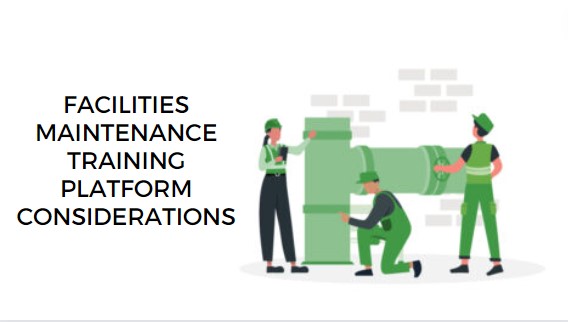
9 Facilities Maintenance Training Platform Considerations
Viki Dongare |
13 Jan 2024 |
07:36 AM
- Understanding Facilities Management
- Significance of Facilities Maintenance Training
- The Scope of Facilities Management
- Defining Facilities Management software
- Challenges in Facilities Management software
- 9 Facilities Maintenance Training Platform Considerations
- The Impact of Facilities Management
- Necessity of Facilities Maintenance Training program
- Designing Comprehensive Training Programs
- Blended Learning Solutions
- Continuing Education in Facilities Management
- Ensuring Compliance and Safety
- Conclusion
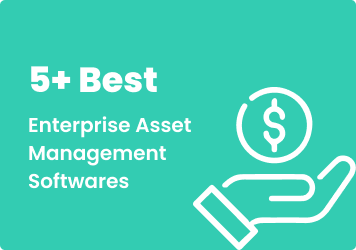
5+ Best Enterprise Asset Management Software
Kirti Prakash 20 Jun 2024 | 16:12 PMDiscover the 5+ best enterprise asset management software solutions for 2024. Compare features, benefits, and find the perfect EAM software for your business needs....
Welcome to the foundation of our journey: understanding the critical aspects of facilities maintenance training platforms. In this introduction, we unravel the intricate tapestry of Facilities Management and delve into the profound significance of Facilities Maintenance Training.
Understanding Facilities Management
Facilities Management is the backbone of any thriving system. It encompasses a broad spectrum of responsibilities, from ensuring the safety and compliance of facilities to optimizing maintenance efficiency. Here, we unravel the layers, providing you with a clear understanding of the role and impact of Facilities Management.
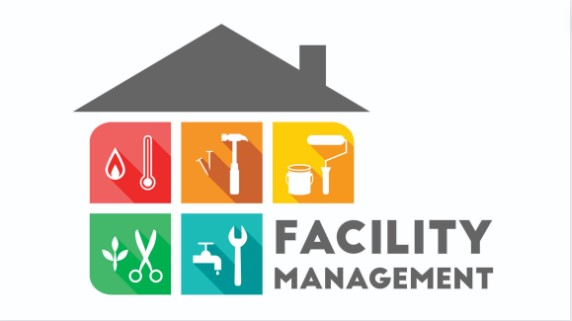
Significance of Facilities Maintenance Training
Beyond the routine operations and regular maintenance tasks, there lies a strategic approach to training programs that goes beyond the technical skills. We explore the holistic significance of such training, addressing both technical competencies and the often-overlooked "soft skills." In doing so, we ensure that your workforce is not just proficient but also adept at navigating the dynamic challenges of facilities management.
The Scope of Facilities Management
Think of it as not just fixing a leak but understanding the broader implications on the entire facility and its occupants. It's about equipping your team with the skills to not just maintain but to elevate the overall operational excellence of your organizational systems.
A workforce well-versed in both technical and soft skills, seamlessly aligning with the overarching goals of Facilities Management. This isn't just about maintenance; it's about fostering a culture of continuous improvement and adaptability.
In our journey through these considerations, we not only address the present needs but also prepare for the future. Join us in exploring the facets that will shape the way we approach Facilities Maintenance Training Platforms.
Defining Facilities Management software
At the core of every successful organization lies the pivotal role of Facilities Management. Think of Facilities Management as the invisible force ensuring your workplace functions smoothly. From HVAC systems to security systems, understanding the breadth of this discipline is crucial for fostering a productive and safe working environment.
Challenges in Facilities Management software
Imagine dealing with the intricacies of energy management, security systems, and the varied needs of different facilities. Recognizing these challenges is the first step toward effective solutions. From compliance issues to the complexities of managing diverse systems, we dive deep into the challenges that Facilities Management professionals encounter daily.
9 Facilities Maintenance Training Platform Considerations
-
Customization Capabilities: Ensure the platform allows tailoring training content to specific facilities maintenance needs.
-
User-Friendly Interface: Opt for platforms with an intuitive design for easy navigation and accessibility.
-
Interactive Learning Modules: Look for engaging modules that incorporate interactive elements to enhance learning effectiveness.
-
Mobile Compatibility: Choose platforms that support mobile learning for flexibility and on-the-go training.
-
Assessment and Certification Features: Assess the effectiveness of training through quizzes and ensure the platform provides certifications upon completion.
-
Real-world Simulations: Platforms with realistic simulations provide hands-on experience for better retention of skills.
-
Progress Tracking: Incorporate platforms that offer tools to monitor and track individual or team progress throughout the training.
-
Integration with Existing Systems: Select platforms that seamlessly integrate with other business systems for a cohesive training environment.
-
Cost-Effective Solutions: Evaluate the cost-effectiveness of the platform, considering the benefits it provides against the investment made.
The Impact of Facilities Management
Impact on the Company
From optimizing operational efficiency to ensuring compliance with safety processes, the impact on the company is multifaceted. Data reveals that businesses investing in robust Facilities Management witness not only cost savings but also heightened productivity.
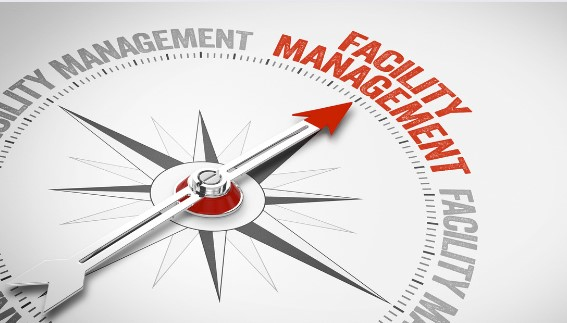
Consider reduced operational costs, improved energy efficiency, and seamless day-to-day operations. A well-managed facility becomes a silent partner in achieving organizational milestones.
Impact on the Employee
At the heart of any business lies its workforce, and Facilities Management (FM) plays a pivotal role in shaping the employee experience. Well-maintained workspaces contribute not only to the physical comfort but also to the overall satisfaction and well-being of employees, ultimately leading to increased productivity.

In the pursuit of a sustainable and employee-friendly workplace, Facilities Management emerges as a silent yet influential partner. The integration of sustainability practices, ranging from energy-efficient processes to waste reduction initiatives, aligns with the growing employee preference for environmentally conscious workplaces. This commitment to sustainability not only enhances the overall reliability and employee experience but also positions the business as a responsible corporate citizen.
Impact on the Customer
Beyond the confines of the organization, Facilities Management extends its impact to the customer experience. A well-maintained and aesthetically pleasing environment serves as the first point of contact between a business and its customers. Whether it's a retail space, an office building, or a manufacturing facility, customers are significantly influenced by the physical surroundings.
As sustainability becomes a focal point in consumer decision-making, Facilities Management can contribute to the positive image of a business by integrating eco-friendly practices. From energy-efficient lighting to responsible waste management, these initiatives not only enhance the customer experience but also align with the values of an increasingly environmentally conscious market.

In the context of inventory and inspections, Facilities Management ensures a seamless operation that directly impacts both employees and customers. Efficient inventory management guarantees the availability of necessary supplies, promoting uninterrupted workflow.
Regular inspections, whether for security protocols or equipment functionality, not only mitigate potential issues but also showcase a commitment to proactive maintenance, instilling confidence in both employees and customers alike.
Necessity of Facilities Maintenance Training program
Why Facilities Maintenance Training Program is Crucial
Consider the savings on costs from reduced breakdowns, optimized equipment performance, and a workforce equipped with the skills to tackle a spectrum of maintenance challenges. It is the transformation from a reactive approach to a proactive one, where well-trained personnel anticipate and address equipment maintenance needs before they escalate.

Common Workplace Training Needs
Every workplace is unique, but certain training needs are universal. From safety protocols to specific technical skills, Facilities Maintenance Training should align with the actual needs of the workforce.
Designing Comprehensive Training Programs
Identifying Technical Skill Requirements
The foundation of any robust training program lies in its ability to meet the technical skill requirements of the workforce. An effective training program focuses on the intricacies of HVAC maintenance, energy management, and safety compliance, ensuring that your team is equipped with the expertise to handle regular operations and maintenance tasks.
Incorporating "Soft Skills" Training
Facilities Maintenance goes beyond technical prowess; it requires a set of interpersonal skills, often referred to as "soft skills." Recognizing the pivotal role of these soft skills ensures not only the efficient management of physical spaces but also fosters a positive and collaborative work environment that contributes to overall organizational success.
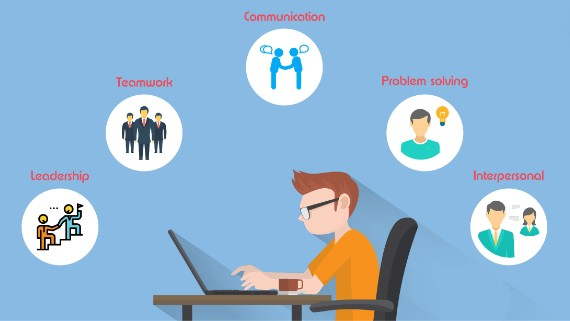
Future-Proofing Training Programs
The landscape of facilities management is dynamic, and training programs must adapt to future challenges. We present a forward-thinking approach to training, ensuring that your team is not just prepared for the present but equipped to handle emerging technologies and evolving industry standards.
Blended Learning Solutions
The Concept of Blended Learning
A holistic training approach should seamlessly integrate the traditional classroom course with cutting-edge online resources - that's the essence of blended learning. Different businesses explore diverse ways in which this hybrid model can be harmoniously combined with in-person course resources and virtual training experiences to create a comprehensive and effective learning environment.
Blended learning offers a dynamic fusion of traditional classroom courses and innovative online resources, presenting a well-rounded educational experience for individuals seeking to advance their career through continuous learning.
It's a transformative approach that caters to various learning preferences, providing the necessary qualifications and skills essential for career growth. Discover the flexibility and adaptability that comes with blended learning, allowing your team to access online courses at their own pace while still benefiting from hands-on experiences.
Advantages for Facilities Maintenance Training program
The concept of blended learning introduces a dynamic and flexible approach to Facilities Maintenance Training, offering a blend of traditional and online methods. The benefits of this approach ensure that your team is not only well-trained but also engaged and ready to tackle the challenges of modern facilities management.
The benefit of blended learning empower facility management teams with comprehensive training, ensuring not only skill development but also managing engagement, preparing them for the demands of contemporary facilities management.
Continuing Education in Facilities Management
Recognizing the Importance of Continuing Education
In an ever-evolving landscape, where advancements occur rapidly, continuous learning becomes key for success. By engaging in ongoing education, professionals in Facilities Management equip themselves with the knowledge and skills necessary to navigate complexities, optimize operations, and effectively address the challenges of the modern workplace.
The commitment to continuous education not only enhances individual career prospects but also contributes to the overall equipment performance and innovation within the field, fostering a culture of reliability and adaptability.
Addressing Ongoing Training Needs
Facilities Management is a dynamic field, and addressing ongoing training needs is paramount for success. From leveraging data-driven insights to incorporating diverse learning methods, this approach guarantees the effectiveness and continuity of training initiatives.
By consistently acknowledging the significance of ongoing learning and actively addressing training needs, individuals and teams not only adapt to change but also play a pivotal role in driving innovation within the field.
Ensuring Compliance and Safety
Safety is not merely a priority but an integral component of effective Facilities Management. Ensuring compliance and safety is a fundamental imperative in effective Facilities Management, serving as the bedrock for operational integrity and stakeholder trust for any industry.
This critical aspect involves navigating a complex landscape of regulations, certifications, and industry standards to guarantee that facilities meet and exceed established guidelines.
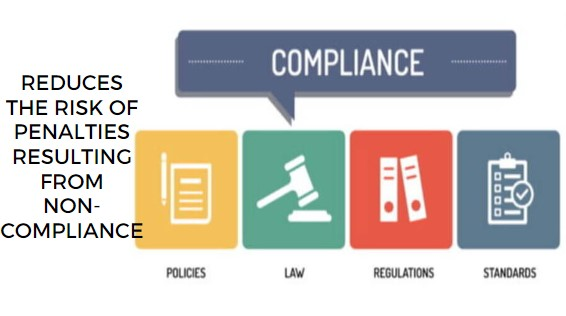
Additionally, the safety component underscores the multifaceted nature of creating a secure environment. It extends beyond physical operations to encompass the establishment of a robust safety culture that reduces risks and ensures the well-being of both personnel and equipment. This comprehensive approach to safety reinforces the commitment to excellence in Facility Management, promoting operational resilience, and fostering a secure and trusted environment.
Conclusion
In the dynamic landscape of Facility maintenance, where safety of operations are paramount, the journey through the various facets of maintaining and optimizing facilities has been both enlightening and empowering.
As we conclude our exploration into the world of Facility Maintenance Training Platform Considerations, it's evident that the fusion of technology, training, and a proactive mindset is the key to unlocking unprecedented success.
From the necessity of comprehensive training programs to the significance of blended learning solutions, every aspect has been meticulously dissected to provide you with actionable insights. The impact on the company, the employee, and the customer is a tangible force that can reshape the trajectory of any business.
The importance of continuing education in Facilities Management system stands as a testament to the ever-evolving nature of this field, urging career-driven professionals to embrace lifelong learning as a cornerstone for success.
In the pursuit of excellence, the reader has been equipped with the tools to navigate the complex system of Facility Maintenance. As you embark on implementing these considerations into your strategy, remember that the journey is ongoing, and the commitment to staying ahead of the curve is the true differentiator.